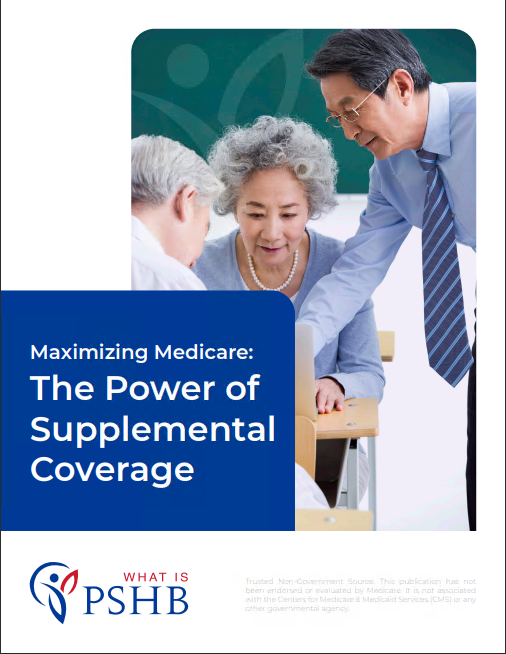Key Takeaways
- Medicare Advantage plans can offer comprehensive healthcare coverage tailored to the needs of USPS retirees, including additional benefits not covered by Original Medicare.
- Understanding the differences between Medicare Advantage and other health plans is crucial for making informed decisions about healthcare coverage.
Postal Workers and Medicare Advantage: Making the Best Choice
As United States Postal Service (USPS) employees approach retirement, understanding their healthcare options becomes increasingly important. One of the choices available is Medicare Advantage, a popular alternative to Original Medicare. This article provides a comprehensive overview of Medicare Advantage plans, their benefits, and key considerations for postal workers deciding if this option is right for them.
Understanding Medicare Advantage
Medicare Advantage, also known as Medicare Part C, is an alternative to Original Medicare (Part A and Part B). These plans are offered by private insurance companies approved by Medicare and provide all the benefits of Part A and Part B, often with additional services.
Key Features of Medicare Advantage Plans
- Comprehensive Coverage: Medicare Advantage plans must cover all services that Original Medicare covers, except hospice care (which is still covered by Part A). This includes hospital stays, doctor visits, preventive services, and outpatient care.
- Additional Benefits: Many Medicare Advantage plans offer extra benefits not covered by Original Medicare, such as vision, dental, hearing, and wellness programs.
- Prescription Drug Coverage: Most Medicare Advantage plans include Medicare Part D, providing prescription drug coverage. This can simplify the management of healthcare needs by consolidating services under one plan.
- Out-of-Pocket Maximums: Medicare Advantage plans have a maximum out-of-pocket limit, which Original Medicare does not. This can provide financial protection against high medical expenses.
Benefits of Medicare Advantage for Postal Workers
Cost Savings
For many postal workers, cost is a significant factor in choosing a healthcare plan. Medicare Advantage plans can offer lower out-of-pocket costs compared to Original Medicare, especially with the inclusion of additional benefits.
- Lower Premiums: Some Medicare Advantage plans have lower premiums, which can be attractive for retirees on a fixed income.
- Fixed Copayments: Unlike Original Medicare, which charges coinsurance for most services, Medicare Advantage plans typically have fixed copayments, making it easier to predict healthcare expenses.
- Out-of-Pocket Maximums: The cap on out-of-pocket spending provides peace of mind and financial security, protecting retirees from unexpected high medical costs.
Integrated Care
Medicare Advantage plans often emphasize coordinated care, which can lead to better health outcomes. Many plans offer:
- Care Coordination: This can include managing appointments, coordinating with specialists, and ensuring that all healthcare providers are on the same page regarding a patient’s care.
- Preventive Services: Enhanced access to preventive services can help detect health issues early, leading to timely interventions and better overall health management.
- Wellness Programs: Many plans offer fitness programs, health education, and wellness incentives to encourage healthy lifestyles.
Additional Services
Medicare Advantage plans often include services that are not covered by Original Medicare, such as:
- Vision Care: Coverage for eye exams, glasses, and contact lenses.
- Dental Care: Routine dental exams, cleanings, and sometimes more extensive dental work.
- Hearing Care: Coverage for hearing exams and hearing aids.
- Wellness Programs: Programs that provide access to fitness centers and wellness classes.
Key Considerations for Postal Workers
Network Restrictions
One of the primary differences between Medicare Advantage plans and Original Medicare is the network of providers. Medicare Advantage plans typically require you to use a network of doctors and hospitals.
- HMO Plans: Health Maintenance Organization plans require you to choose a primary care physician (PCP) and get referrals to see specialists. You must use in-network providers for your care.
- PPO Plans: Preferred Provider Organization plans offer more flexibility, allowing you to see out-of-network providers at a higher cost. However, staying within the network reduces your out-of-pocket expenses.
- Network Availability: It’s essential to ensure that your preferred doctors and hospitals are included in the plan’s network. For postal workers who may live in rural areas, this can be a significant consideration.
Comparing Costs
When evaluating Medicare Advantage plans, it’s crucial to compare all potential costs, including:
- Premiums: While some plans have lower premiums, others might have higher monthly costs.
- Deductibles: Check if the plan has any deductibles for medical services or prescription drugs.
- Copayments and Coinsurance: Understand what you’ll pay for doctor visits, hospital stays, and other services.
- Maximum Out-of-Pocket Limit: Compare the out-of-pocket maximums, as this can significantly impact your total healthcare costs.
Evaluating Coverage Needs
Each postal worker has unique healthcare needs, which should be considered when choosing a Medicare Advantage plan.
- Chronic Conditions: If you have chronic health conditions, look for plans that offer robust care coordination and disease management programs.
- Medication Needs: Ensure that the plan’s Part D coverage includes your prescription medications. Check the formulary to see if your drugs are covered and at what cost.
- Additional Benefits: Consider the value of additional benefits like dental, vision, and hearing coverage. These can reduce out-of-pocket costs for services not covered by Original Medicare.
Assessing Plan Quality
Not all Medicare Advantage plans are created equal. It’s important to evaluate the quality of the plans available to you.
- Star Ratings: Medicare rates Advantage plans on a scale of 1 to 5 stars based on quality and performance. Higher-rated plans typically offer better care and service.
- Customer Reviews: Reading reviews and asking for recommendations from friends and family can provide insights into the plan’s customer service and overall satisfaction.
- Provider Networks: Research the plan’s network to ensure it includes high-quality doctors, hospitals, and specialists.
Enrollment and Switching Plans
Understanding when and how to enroll in Medicare Advantage is crucial.
- Initial Enrollment Period (IEP): This is the seven-month period around your 65th birthday when you can first enroll in Medicare.
- Annual Enrollment Period (AEP): From October 15 to December 7 each year, you can switch Medicare Advantage plans or move from Original Medicare to Medicare Advantage.
- Medicare Advantage Open Enrollment Period: From January 1 to March 31, those already enrolled in a Medicare Advantage plan can switch to another Advantage plan or return to Original Medicare.
Making the Best Choice
Choosing the right Medicare Advantage plan involves careful consideration of your healthcare needs, financial situation, and the specific details of available plans. Here are some steps to help make an informed decision:
- Assess Your Needs: Make a list of your healthcare needs, including preferred doctors, prescription medications, and any chronic conditions.
- Compare Plans: Use the Medicare Plan Finder tool on Medicare.gov to compare available Medicare Advantage plans in your area.
- Review Costs: Look at premiums, deductibles, copayments, coinsurance, and the out-of-pocket maximum for each plan.
- Check Networks: Ensure your preferred healthcare providers are in-network for the plans you’re considering.
- Consider Additional Benefits: Evaluate the value of extra benefits like dental, vision, hearing, and wellness programs.
- Seek Advice: Consult with a licensed insurance agent or benefits advisor to get personalized guidance.
By thoroughly researching and comparing your options, you can choose a Medicare Advantage plan that provides comprehensive coverage, meets your healthcare needs, and fits your budget. For postal workers, making the best choice in healthcare coverage can lead to better health outcomes and greater financial security in retirement.
Contact Information:
Email: [email protected]
Phone: 6145554567










